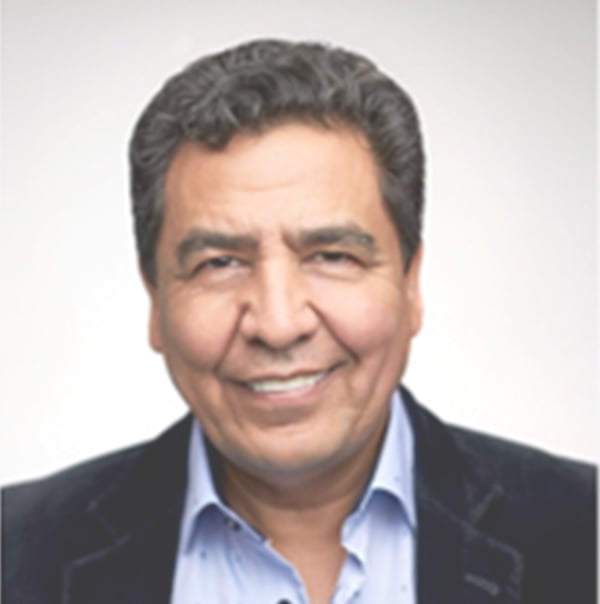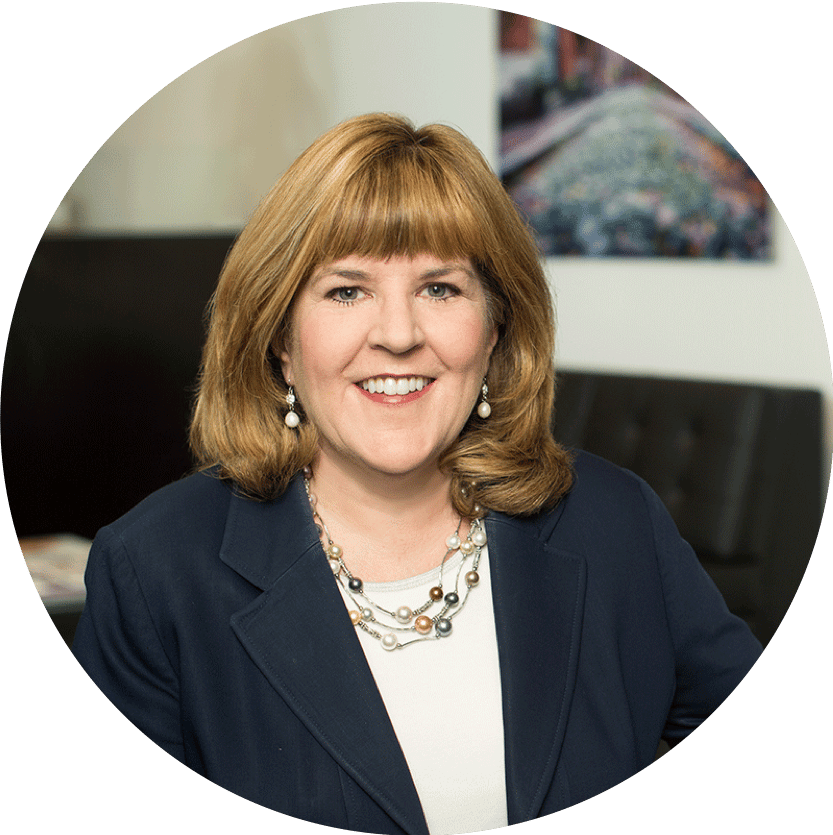Your journey starts here.
Drawing on our work with 600+ boards annually, we created a real-world guide to help you find your first corporate directorship. From starting your search, to interviewing
for a directorship, to getting off to a good start as a new board member, this guide
will prepare you to confidently take a seat at the boardroom table.
406
New directors elected to S&P 500 boards in the 2024 proxy season
65%
of directors named to boards in 2023 were not C-suite executives


The Path to the
Boardroom
DOWNLOAD THE GUIDE
A practical guide to landing your first corporate board seat
START THE JOURNEY
Step 1: Positioning Yourself for First-Time Board Service
Board service can be one of the most rewarding career experiences: It’s the opportunity to see first-hand how another company operates at the highest levels and to work with–and learn from–accomplished, articulate and intelligent people. Begin the process by
following the three steps below.
Objectively assess your readiness and qualifications
Directorship is a part-time job with full-time responsibilities. As you consider your readiness to serve, ask yourself if you truly do have the time to prepare for and participate in full board and committee meetings.
Do you have time to serve?
Average amount of time directors spend on board
matters annually (source: National Association of Corporate Directors)
300+
hours
Finding a seat takes time
2
years
average length of time to find your first corporate board seat
Explain what makes you special
Showcase your expertise in digital, specific industries or in working with regulators.
If part of your value is in the diversity you bring, say precisely how it’s relevant to that board.
START THE JOURNEY

Objectively assess your readiness and qualifications
Create your board biography

Raise your profile


Raise your profile

Create your board biography

Objectively assess your readiness and qualifications
DOWNLOAD THE GUIDE
DOWNLOAD THE GUIDE
Create your board biography
Your board biography is not just a revised version of your executive CV. It tells a focused, comprehensive story about the value you bring to a board. It should include leadership, mentoring, P&L responsibility, governance knowledge, board exposure and management experiences. It might also include speciality experiences, such as e-commerce, digital / technology, human resources, M&A and marketing depending on your background. Below is a brief sample of how your board biography might look.
Raise your profile
Applying for a board seat is not the same as applying for a job, but you can use some of the same skills. Here are a few ways to build your brand as a corporate director.
Network, Network, Network
It can be exhausting, but you need to spend time with as many connections as possible to position yourself as a potential director.
• Let colleagues, peers, consultants and private equity managers know you are interested in board service.
• Join an organization that focuses on board service and attend their events to meet sitting directors.

Objectively assess your readiness and qualifications

Create your board biography

Raise your profile
Step 3: Getting Off to a Good Start




Celebrate! You landed your first board seat—congratulations! The decisions you make matter, and they will have an impact on your company and possibly the world.
That means you will want to be as prepared as possible to serve and learn
from the very start. Here are several things you can do.
Step 2: Interviewing for First-Time Board Service
Interviewing successfully for a board seat is a subtle matter of substance and style. As you will discover, it's often a series of conversations rather than an HR-style interview. You will likely meet with the head of the Nominating Committee, the Board Chair and the CEO, if the roles are split. We've developed
some guiding principles to help you prepare.
Before your first meeting
As you prepare for the first meeting, you will want to build your governance knowledge and get to know your fellow directors.
Ask the right questions
At your first meeting
As you join your first meeting, observe the dynamics at play within the boardroom while also executing your primary role as a shareholder representative.
Be ready to ask questions about the company that show you have “done your homework” and that you have taken the time to understand the company in detail. You could ask:
In the first six months
Use your first six months to become more confident in your role as a director.
Ask questions, read industry publications and consider a board education program.
How is the company overseeing specific risks, such as data security?

How does the company create and foster a culture of innovation?

What role does management play in board meetings?

What role does the board play in strategy?

For more preparation guidance, download the full guide




Explain your experience with your company’s board
Synthesize insights and impressions from those experiences and weave
them into the conversation. This shows you are no stranger to the boardroom.
For more interview guidance:
Secure high-level, credible references who can discuss your board readiness.
Ideally, these references include experienced corporate board members.
Know the rules and regulations of board operations
Request a mentor (if one hasn't been provided)
Get to know the board chair and committee chairs
Schedule time with the GC to learn more
Mentors are invaluable guides to the culture, composition, and conduct of the board
Arrange a call or meeting with the chair, CEO and committee chairs


DOWNLOAD THE GUIDE
DOWNLOAD THE GUIDE
Remember…the vetting process for a board seat is lengthy. Director searches take as long, or longer, as searches for top executives, with stretches of time between steps. Don’t be unnerved by the length of the process or assume that you’ve been rejected. Boards have their own method for adding directors.


CAN YOU ACE YOUR BOARD INTERVIEW?
Most prospective directors stumble on this question. Can you get it right?
Why do you want to be on this board?
Select one of the options below.
Understand your role as a director versus the role of management
Maintain the appropriate demeanor
Represent the shareholders
Be collegial but have the courage to speak up
and ask probing questions
Treat board members
as you would like them to treat you
The role of directors is to govern—not to micro-manage the company or its executives
It’s a great learning opportunity for me.
For the knowledge I can take back to my day job.
It’s the next logical step in my career.
I love this company so much, and I really want to be a part of it.
I’m intrigued by how I could help the company.
Seek feedback on your performance early on.
Learn More
Lisa Blais
Stay current with boardroom matters and trends.
Continue to build relationships outside of the boardroom
+1 617 535 3540
lisa.blais@egonzehnder.com
Get to know directors in informal settings


Don’t wait for the formal board evaluation
Seek out continuing education programs for directors
Sarah Van Dyck


+1 415 963 8520
sarah.vandyck@egonzehnder.com
DOWNLOAD THE BOARD BIO TOOLKIT
DOWNLOAD THE FULL GUIDE
DOWNLOAD THE FULL GUIDE
DOWNLOAD THE BOARD BIO TOOLKIT
Now, take a deep breath…and wait.
If the answer is yes, give your career and skill sets an honest assessment.
Boards tend to seek very senior executives with significant P&L responsibility.
In addition, there are often specific skill sets that are highly desirable
for particular companies.
For more guidance on crafting your board biography, including sample templates, download our Writing Your First Board Biography guide.

John Doe
General Manager
He has over 25 years of business leadership experience in multinational environments, having lived and held executive positions on four continents. During his career, he has built a reputation for operational excellence, innovative strategic thinking, working with the highest level of integrity, and a deep and passionate commitment to Company’s clients.
John Doe is Executive Vice President for Company, accountable for revenue, profit, and client satisfaction in Japan, Asia Pacific, Latin America, and the Middle East and Africa. In his role, Doe has responsibility for Company's worldwide results, which exceeded $30 billion in 2023.
He began his career at Company in Asia in 1975 as a software customer engineer. His first significant leadership role for the company was leading the $1B Global Services business in Japan in 1998. After returning the unit to growth, he became General Manager of Company in Latin America, where he oversaw Company’s operations in 20 countries.
In 2005, Doe moved to Europe to become General Manager for Company. He was responsible for over $16B in revenue and approximately 60,000 employees. He led all of Company's business operations, had full profit and loss ownership, and ensured risk management, compliance and business controls across Company's business units in Europe.
Find and accept speaking engagements and write articles to showcase your expertise and experience. (Ideally the audience would be board members and C-level executives.)
CORRECT ANSWER:
I'm intrigued by how I could help the company.
Your interview is about the value you bring to the board, not the board’s value to you. You also shouldn’t gush about the company—even if the praise is genuine. It could be mistaken for empty flattery.
CORRECT ANSWER:
I'm intrigued by how I could help the company.
TRY AGAIN

The Opportunities to Serve
Finding a boardseat is akin to a job search. It takes time and effort to find the right fit, and there are more qualified candidates than there are board seats. But more opportunities are becoming available.









About Egon Zehnder
With our more than 50 years of experience in executive search, we know what it takes to put together an effective board. We also know that no one person has all the types of expertise needed today, which is why bringing together a diverse set of perspectives and backgrounds is more critical than ever. We are also deeply committed to diversity and inclusion and feel passionately about bringing the value of multiple views and differences into the boardroom. With a truly global network of consultants and a commitment to finding not just the obvious candidates but also those who are less known, we are able to bring you deeply qualified leaders with the skills to handle today’s biggest issues.

DOWNLOAD THE FULL GUIDE
DOWNLOAD THE FULL GUIDE
Contact Info




Click boxes for more information
Click boxes for more information
Click boxes for more information
Board bio example







Tap for more information
Tap for more information
Use your first six months to become more confident in your role as a director. Ask questions, read industry publications and consider a board education program.
Board bio example







































Consider joining a nonprofit board. You can begin to understand the inner workings of a board and also expand your network, as many of your fellow directors may also serve on corporate boards.
Consider joining a nonprofit board. You can begin to understand the inner workings of a board and also expand your network, as many of your fellow directors may also serve on corporate boards.

Chuck Gray


+1 212 519 6000

chuck.gray@egonzehnder.com



German Herrera


+1 305 569 1040

german.herrera@egonzehnder.com
German Herrera


+1 305 569 1040

german.herrera@egonzehnder.com